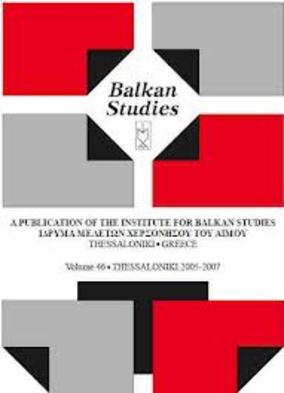Constitutional systems of Serbia and Greece on the Eve of the World War One
Part of : Balkan studies : biannual publication of the Institute for Balkan Studies ; Vol.45, No.1-2, 2004, pages 45-58
Issue:
Pages:
45-58
Section Title:
Greek-Serbian relations in the first half of the 20th century
Author:
Abstract:
The subject-matter of this paper is a comparative analysis of the constitutionalsystems of Serbia in 1903 and that of Greece in 1911. After analyzingthe matter, it is demonstrated that these two states in the Balkans, that“Damned Peninsula” and a “soft belly” of Europe, in spite of numerous internaland external difficulties, have been successful in establishing a democraticorder that was based on the idea of a modern state, meaning the sovereigntyof the people, respect for human rights, a representative government, separationof power.Following is the order of the analysis: constitutional rights of citizens, thestructure of state power and finally, the most significant constitutional factors:the King as an element of bicephalous legislation and executive, parliament asa protagonist of legislative power, ministers as most important segments ofexecutive power, courts as protagonists of judicial power, and finally, the localself-government. Council of State and the matter of amending the constitutionhave been also considered. On the ground of this analysis, the conclusion is that both Serbia andGreece have entered 20th century as democratic states, naturally, within theconditions that have existed in the Balkans at that time.
Subject:
Subject (LC):
Keywords:
Ελλάδα-Σερβία




